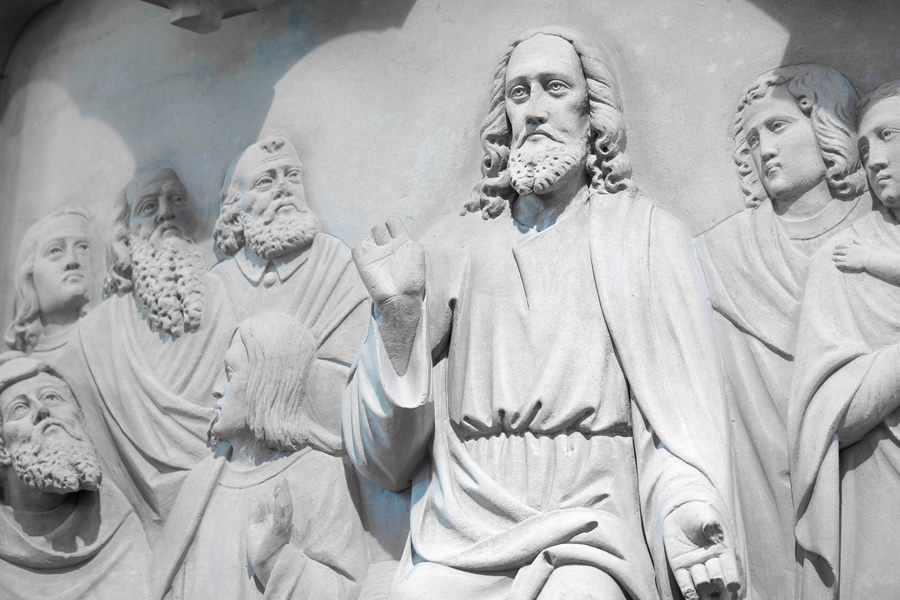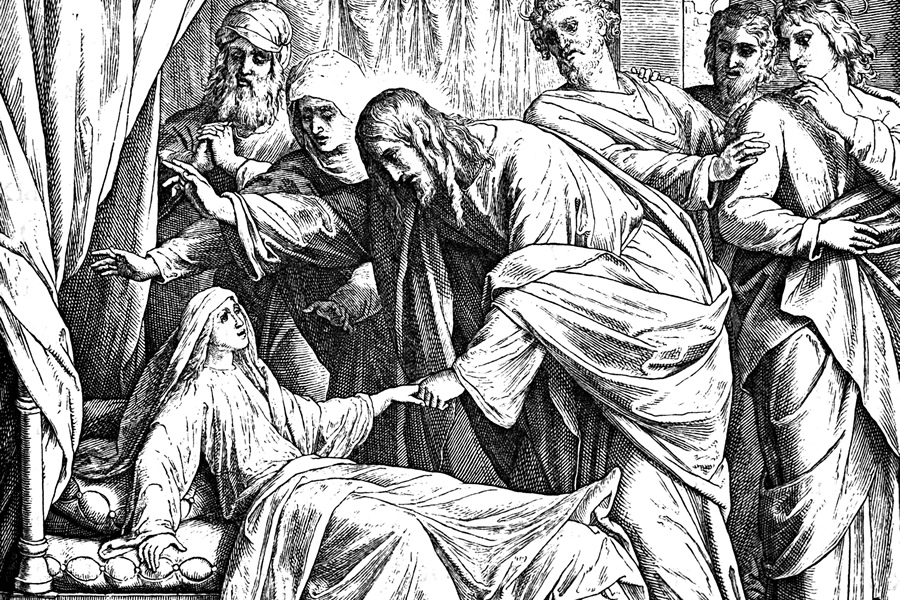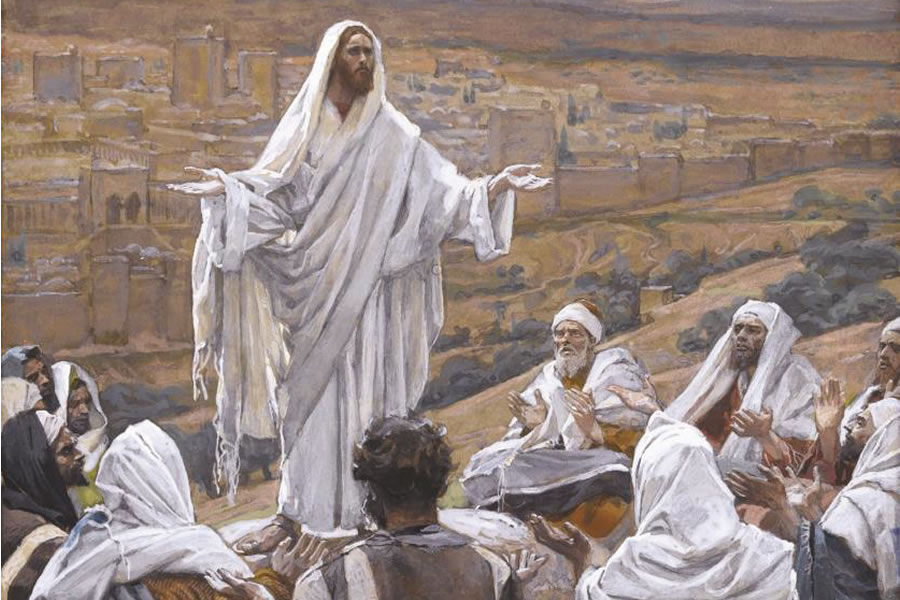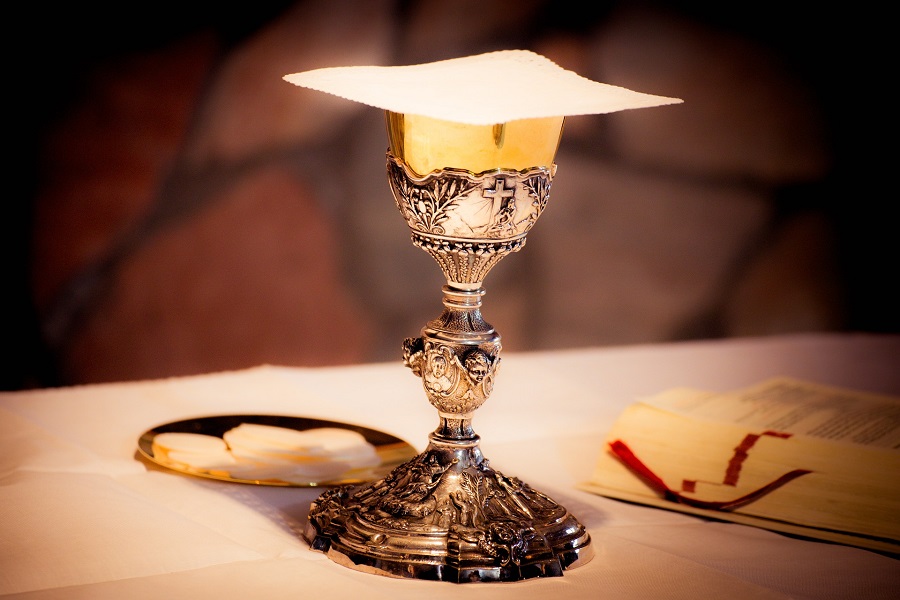
One Flock
07-21-2024Weekly ReflectionDr. Scott Hahn © St. Paul Center for Biblical TheologyAs the Twelve return from their first missionary journey in today’s Gospel, our readings continue to reflect on the authority and mission of the Church.
Jeremiah says in the First Reading that Israel’s leaders, through godlessness and fanciful teachings, had misled and scattered God’s people. He promises God will send a shepherd, a king and son of David, to gather the lost sheep and appoint for them new shepherds (see Ezekiel 34:23).
READ MORE
The Church’s Mission
07-14-2024Weekly ReflectionDr. Scott Hahn © St. Paul Center for Biblical TheologyIn commissioning the Apostles in today’s Gospel, Jesus gives them, and us, a preview of His Church’s mission after the Resurrection.
His instructions to the Twelve echo those of God to the twelve tribes of Israel on the eve of their exodus from Egypt. The Israelites likewise were sent out with no bread and only one set of clothes, wearing sandals and carrying a staff (see Exodus 12:11; Deuteronomy 8:2–4). Like the Israelites, the Apostles are to rely solely on the providence of God and His grace.
READ MORE
Son of Mary
07-07-2024Weekly ReflectionDr. Scott Hahn © St. Paul Center for Biblical TheologyAs we’ve walked with the Apostles in the Gospels in recent weeks, we’ve witnessed Jesus command the wind and sea, and order a little girl to arise from the dead.
But He seems to meet His match in His hometown of Nazareth. Today’s Gospel is blunt: “He was not able to perform any mighty deed there.”
READ MORE
Arise!
06-30-2024Weekly ReflectionDr. Scott Hahn © St. Paul Center for Biblical TheologyGod, who formed us in His imperishable image, did not intend for us to die, we hear in today’s First Reading. Death entered the world through the devil’s envy and Adam and Eve’s sin; as a result, we are all bound to die.
But in the moving story in today’s Gospel, we see Jesus liberate a little girl from the possession of death.
READ MORE
Speak Out in Opposition to Physician Assisted Suicide
06-23-2024Weekly ReflectionThe Massachusetts State Legislature has only six more weeks to consider legislation (Senate Bill 1331) that would legalize the practice of Physician Assisted Suicide. The bill is titled, “An Act relative to end of life options”. Working together, we can join health care professionals, disability groups, senior citizens, the infirmed and countless individuals in saying NO to assisted suicide! We can also join our neighbors in New Hampshire1 and stop the legislation from moving forward this session.
READ MORE
Tree of Righteousness
06-16-2024Weekly ReflectionDr. Scott Hahn © St. Paul Center for Biblical TheologyIn the cryptic message of the prophet Ezekiel, long centuries before the Lord’s coming, God gave His people reason to hope. Ezekiel glimpsed a day when the Lord God would place a tree on a mountain in Israel, a tree that would “put forth branches and bear fruit.” Who could have predicted that the tree would be a cross on the hill of Calvary, and that the fruit would be salvation?
READ MORE
The Promised One
06-09-2024Weekly ReflectionDr. Scott Hahn © St. Paul Center for Biblical TheologyIn today’s Gospel Jesus has just been healing and casting out demons in Galilee. Along with the crowds, who flock to Him so that He can’t even take a break to eat, come people who do not understand what He is doing. Even His friends think He has lost His mind and needs to be taken away for a while. But the scribes who came down from Jerusalem are not just honestly mistaken; they accuse Him of being possessed by the prince of demons.
READ MORE
Blood of the Covenant
06-02-2024Weekly ReflectionDr. Scott Hahn © St. Paul Center for Biblical TheologyAll of today’s readings are set in the context of the Passover. The First Reading recalls the old covenant celebrated at Sinai following the first Passover and the Exodus.
In sprinkling the blood of the covenant on the Israelites, Moses was symbolizing God’s desire in this covenant to make them His family, His “blood” relations.
READ MORE